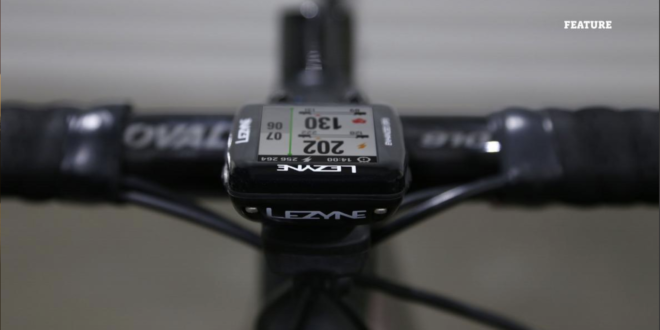Cyclists love a bit of glamour. From whale technology rims to 3D printed jockey wheels, the buzz in the cycling world is often around the brands and products causing a bit of a stir. But take a step back from carbon components and aero bikes and you’ll find companies working hard to keep us on the road, without the fanfare.
The team behind Californian firm Lezyne is doing exactly that, bringing “unique, beautifully engineered” accessories that keep the wheels turning – from bottle cages, lights, and floor pumps, to bells for the safety conscious rider. You may associate the Lezyne logo with stylish bike lights or maybe compact multi-tools, but things are changing.
Lezyne was founded in San Luis Obispo, California, in 2007 by ex-pro triathlete and German native Micki Kozuschek. After a few years out of the bike trade, Kozuschek decided it was time for a new challenge. Seeing a space for “properly engineered and well-designed bicycle accessories”, he took his chance. Lezyne worldwide marketing manager, Dillon Clapp, explains: “Once Micki decided to start a new company, it didn’t take long to go from concept to shipping products worldwide – about one year.
“With his past experience of starting and running a brand, setting up a factory, product development and establishing a worldwide network of distributors, Micki had Lezyne up and running remarkably quickly.
“There was a serious hole in the industry when it came to properly engineered and well-designed bicycle products,” Clapp continues. “The actual Lezyne ‘brand’ came out of deciding to make bicycle accessories and use his experience in component manufacturing to make unique, beautifully engineered products.”
Kozuschek set about selling his accessories as a retort to products already on the market, which he saw as poorly engineered catalogue copies. But Lezyne was not a first foray into the bike trade for him. In the prime of his triathlon career, he started Maxcycles, introducing quality bikes and clothing to the German market.
Shortly after moving to the US, Kozuschek then established Truvativ, which became a leading maker of original equipment manufacturer (OEM) and aftermarket components. Then in 2004, Kozuschek sold Truvativ to industry giants SRAM, and took the opportunity to step back from the trade to build his dream home and spend time with his family.
Clapp says: “After selling Truvativ and taking a few years off, Micki was eager to start a new brand. Part of it was boredom, part of it was feeling unsatisfied knowing he could have accomplished more with Truvativ and, of course, to start generating revenue again. “I think for Micki, going from running a company that was an OEM powerhouse, to a brand that relies more heavily on aftermarket business was different and created some learning hurdles.”
But even after 11 years delivering industry-leading engineered accessories, time doesn’t stand still at Lezyne, and the team face the same challenges as the rest of the bike trade.
Clapp explains: “I think the entire industry sees everything going online and are trying to figure out how to reach consumers with increasingly shorter attention spans in a convoluted, oversaturated digital market.
“Selling and marketing accessories that range from patch kits to bicycle computers, and everything in between, can create its challenges. It’s a challenge, but we have a strong direction we are going in to clearly define our categories.”
With those challenges in mind, Kozuschek and Lezyne are trying to ensure they’re at the crest of the industry wave, pivoting to become a technology company while fine-tuning existing products.
Clapp explains: “We are growing our product line and becoming more of a ‘tech’ company with the recent introduction of our GPS platform. One of the reasons Lezyne is successful is Micki oversees every department and keeps everything in-house. We can quickly react to changes in the cycling environment because we design, develop and produce everything in-house, and we have our own graphics and marketing team in-house.”
This year, Lezyne launched a new line of Mega GPS cycle computers, upgraded with mapping capabilities, larger displays and increased battery life. And when asked what the future holds for Lezyne, Mr Clapp said the company will not be slowing down: “We have a lot of momentum surrounding our GPS platform and we don’t plan to take our foot off the gas pedal anytime soon.
“The rest of the product line is well established and we will continue to fine-tune that. Our philosophy will continue to be ‘engineered design’. We are an engineering-first company, with an eye for beautifully designed products.”
Lezyne’s ongoing evolution from accessory designer to technology engineers proves that while there might be a light at the end of the tunnel, you’ll need a GPS to get there.
 BikeBiz Bicycle and cycling retail news
BikeBiz Bicycle and cycling retail news




